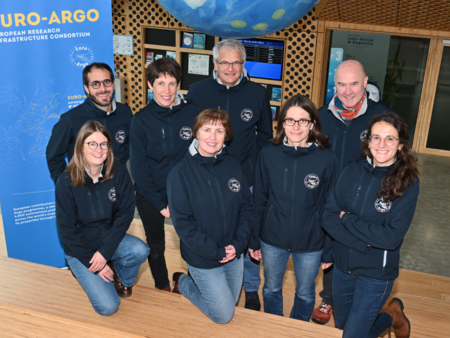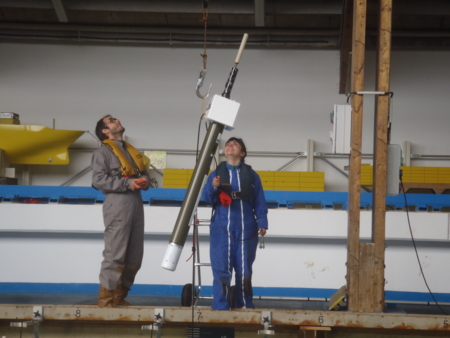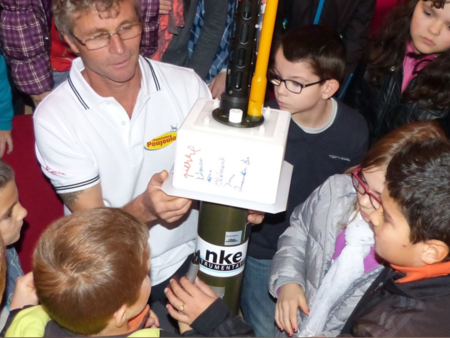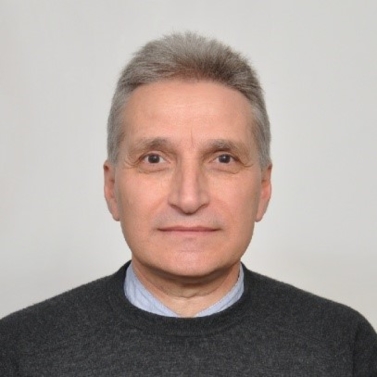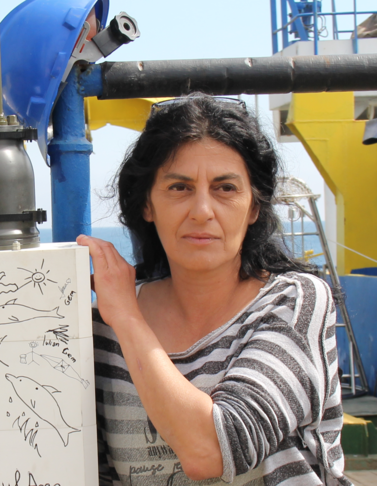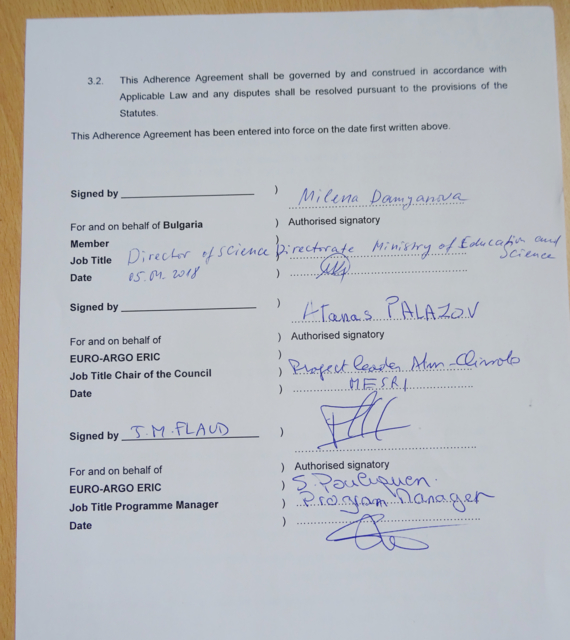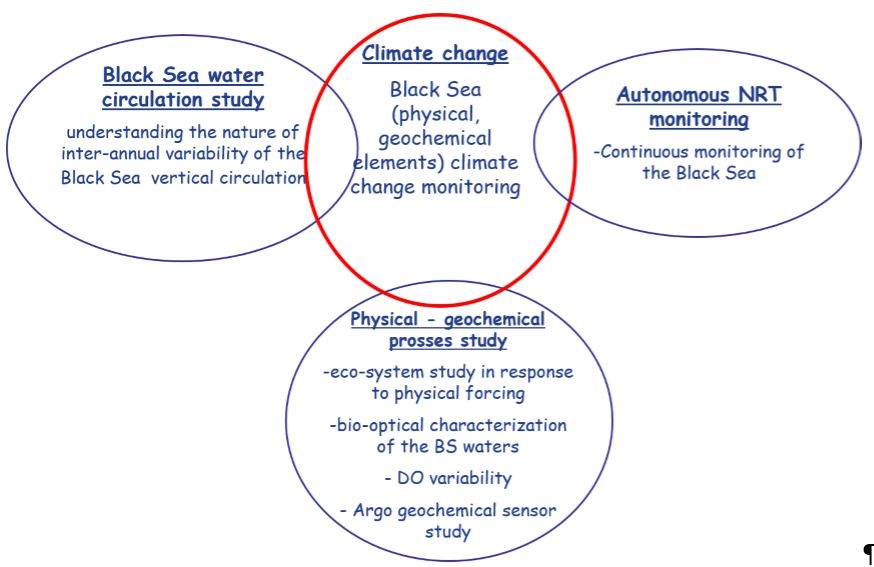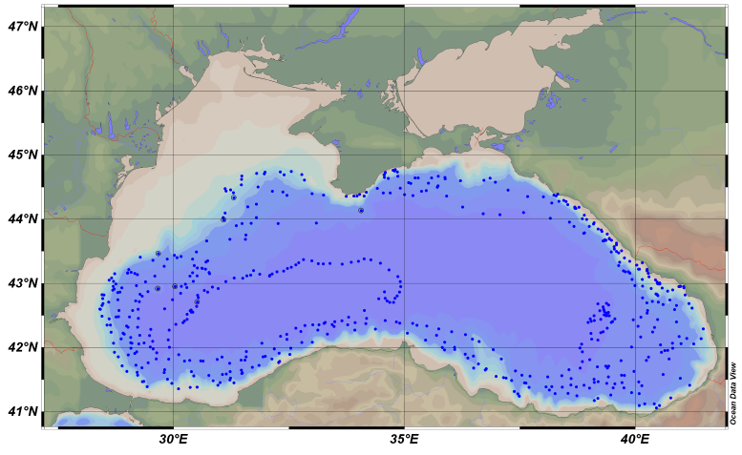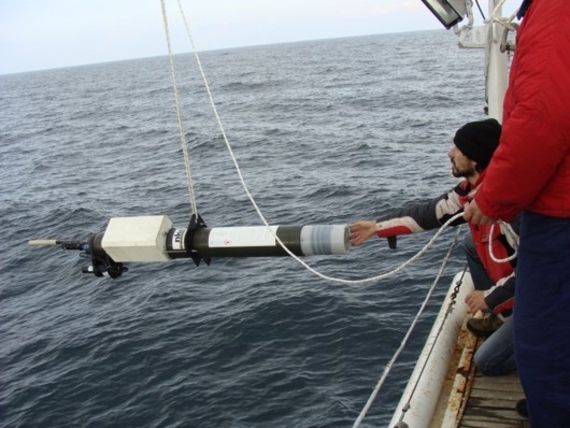Bulgaria joins the Euro-Argo ERIC as a new member
Bulgarian representatives were invited to the 5th Euro-Argo ERIC council meeting in Paris the 5th April 2018, where Milena Damyanova from the Bulgarian Ministry of Education and Science signed the Adherence Agreement that formalizes the status of Bulgaria as a full member of the Euro-Argo ERIC.
Figure 1: Milena Damyanova (Bulgarian Ministry of Education and Science), Jean-Marie Flaud (Euro-Argo ERIC council chair)
and Sylvie Pouliquen (Euro-Argo ERIC programme manager) signing the Bulgarian Adherence Agreement to the Euro-Argo ERIC in Paris, 5 April 2018.
Atanas Palazov and Violeta Slabakova from IO-BAS will represent Bulgaria at Euro-Argo ERIC council and management board respectively.
BulArgo – the Bulgarian Argo project
Bulgarian Argo activities are focussed on the Black Sea. This basin is virtually isolated from other European Seas, except a limited exchange through the Turkish Straits System. It consists in a highly dynamic and complex eddy-driven circulation system that forms the largest anoxic water body in the world. The Black Sea receives drainage from almost one-third of the continental Europe which includes 17 countries, 13 capitals and 160 million people, and is one of the most eutrophicated basins among the European seas.
The use of Argo data is essential in the Black Sea for many reasons :
- There is a need to better understand Black Sea ocean processes;
- Black Sea Monitoring and Forecasting Systems need in situ Real Time data for assimilation and validation;
- Reference in situ data are mandatory for regional satellite products validation and calibration;
- Assessment of global change and its regional impact required sustained observations of the marine environment;
- Marine industry needs marine products (shipping, fishery, tourism, aquaculture);
- Safety at sea needs real time data and forecasts (search and rescue, oil spills combat);
- There is a lack of resources for organization of regular research cruises (especially in the open part of the Black Sea);
Figure 2: Black Sea Argo applications
The BulArgo project was initiated in 2011, funded by the Bulgarian National Science Fund and the Ministry of Education, Youth and Science in a partnership between the Institute of Oceanology – BAS (Varna), the National Institute of Meteorology and Hydrology – BAS and Sofia University “St. Kliment Ohridski”.
Its objectives are:
- To develop national research infrastructure as a Bulgarian component of the Euro-Argo network;
- To increase sources of the Black Sea in situ data and to improve quality of local in situ products and forecasts;
- To promote international collaboration towards the establishment of a Black Sea Argo programme.
Since June 2012, in a frame of a collaborative effort with MEDARGO, IO-BAS has deployed 12 Argo floats in the Western Black Sea.
Figure 3: Position of Argo profiles in the Black Sea since 2012.
In December 2013, in the frame of the E-AIMS European project, Bulgaria deployed for the first time 2 Biogeochemical Argo floats equipped with a SBE41CP CTD sensor, a dissolved oxygen sensor (Optode Aanderaa 4330, multi calibrated) and a Rem A pack fully integrated (for Irradiance, Chl-A and backscattering measurements). The two floats were deployed in the Western Black Sea (Figure 4).
Figure 4. Biogeochemical Argo float deployment in the Western Black Sea in December 2013.
Bulgarian contribution to Euro-Argo
Through its contribution to the Euro-Argo ERIC, Bulgaria aims to:
- strengthen the Black Sea contribution to the Euro-Argo programme;
- support the implementation of the EU Marine Policy in the Black Sea thought deployment of 1 biogeochemical float (DO, CHL-A, Nitrates) and 2 standard floats per year;
- extend the contribution of individual Black Sea countries for operational or scientific purposes;
- apply for support via national and EU projects to buy floats in order to maintain a minimum fleet of 10 active floats in the Black Sea (optimal number of floats in Black Sea is considered to be 12 to 16).

